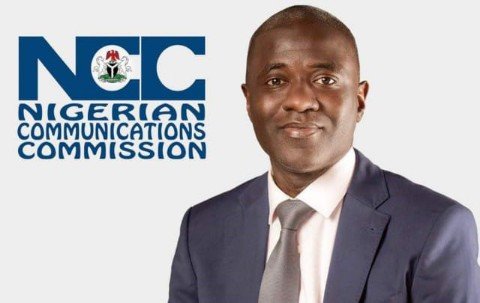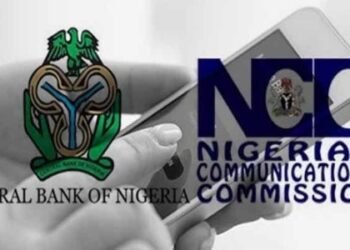Executive Vice Chairman/CEO of the Nigerian Communications Commission (NCC), Dr Aminu Maida, has said a resilient telecoms infrastructure is essential for robust and sustainable national development.
He said, without a resilient telecoms infrastructure, designated as Critical National Information Infrastructure (CNII), via the Presidential Order of June 2024, the collective aspiration for Nigeria as a prosperous country is at risk.
The NCC EVC/CEO stated these in his Keynote Address at the Second Edition of the Strategic Stakeholders Meeting of the Association of Telecommunication Companies (ATCON), held in Abuja, on Friday.
Maida was represented at the ATCON Meeting by the NCC Assistant Director (Compliance Monitoring and Enforcement Department), Mrs. Chioma Ibe.
He described the meeting as a diverse coalition of telecoms operators and other stakeholders united by a shared vision toward a digitally-enabled and economically-secured future and to strengthen Nigeria’s digital infrastructure.
Speaking on the theme of the ATCON Meeting, “Building Resilience in Nigeria’s Digital Infrastructure: The Executive Order and Beyond,” he said, as Nigeria accelerates its digital transformation, it is at a crossroads of unprecedented opportunities and formidable challenges.
Maida emphasised the critical role of telecoms as a national infrastructure, noting that the digital transformation of Nigeria has accelerated over the past decade.
“In a world increasingly defined by data and digital systems, our infrastructure is no longer just physical—it is virtual, interconnected, and crucial to every sector of society.
“As we enter this new era, we must forge a path toward a secure, resilient, adaptive, and inclusive digital future.
“From e-governance to digital financial services, telemedicine, education, and smart agriculture, the dependency on digital infrastructure continues to grow.
“At the heart of our discussion is the Presidential Order of June 2024, which designates telecoms infrastructure as Critical National Information Infrastructure (CNII).
“CNII encompasses the interconnected systems and networks—telecommunications, data centres, and digital platforms—that power Nigeria’s economy, security, public health, and governance.
“These are the foundational pillars of our digital ecosystem, enabling critical sectors like finance, healthcare, energy, and education to thrive.
“Telecoms towers, fibre optic networks, data centres constitute the digital lifelines of our economy, and any disruption to these assets could paralyse vital services—including emergency communications, financial transactions, and government operations.
“This designation is a landmark recognition of telecoms as a cornerstone of national stability and digital sovereignty.
“With 171million mobile subscribers and a teledensity of 79.22 per cent, as of June 2025, our telecoms sector is the backbone of digital inclusion, connecting Nigerians to education, economic opportunities, and essential services.
“The industry contributes over 14.4 per cent to Nigeria’s GDP (as of Q4 2024) and underpins nearly all critical sectors—from banking, energy, and health to security, education, and governance,” the NCC EVC further said.
Maida, however, stated that the transformation of the critical telecoms infrastructure brought in its wake a host of vulnerabilities, including cyber-attacks, physical sabotage, climate-related disasters, and infrastructural duplication, among others.
He added that the consequences of the identified vulnerabilities on the country’s telecoms infrastructure are far-reaching.
“A disruption in our telecommunications network can stall emergency services, halt financial transactions, disrupt businesses, and affect national security. Thus, resilience is not a luxury—it is a national imperative,” he said.
The NCC EVC admitted that the telecoms infrastructure is facing relentless threats. He said the Nigeria Cybersecurity Outlook Report by Deloitte highlights a surge in cyber threats in 2024, from ransomware to insider attacks.
“Physical disruptions, such as vandalism and theft, are equally alarming, with service providers reporting an average of 30 to 43 fibre cuts daily. These incidents erode service reliability, public trust, and economic stability,” he said.
He therefore declared that the Presidential Order is a clarion call to protect the vital infrastructure, adding: “It aligns with Nigeria’s National Digital Economy Policy and Strategy (2020- 2030) and the Renewed Hope Agenda.
“A resilient CNII will foster citizen confidence, attract investment, and position Nigeria as a leader in Africa’s digital economy. Without it, our aspirations for a connected and prosperous nation are at risk.”






























